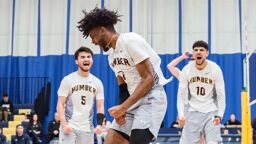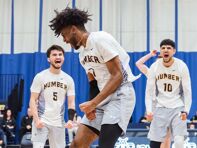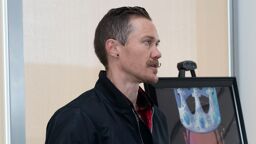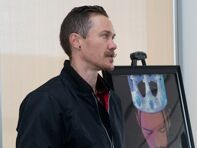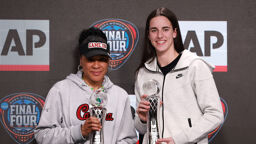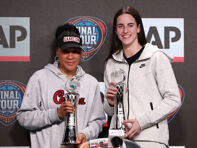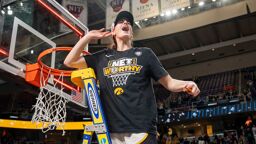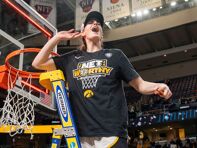Editor’s Note: According to www.twainbow.org, a website dedicated to assisting people with LGBT+ and autistic citizens, there are 223,202 people in the United States who identify on the Autism spectrum and are LGBT+. Also, www.tainbow.org had mentioned that there are 318.86 million people in the United States. If you do the calculations, people who identify as autistic and LGBT+ are represented as, 0.0007% of the United States population.
Before coming out as gay, I always knew I was “that kid” in school from my autism. The one who was getting pulled out of class for occupational and speech therapy, the kid who would have meltdowns in class, and the one who would be seeing therapists inside and outside of school.
When I was very young, my parents and my sister were informed that I would never be able to talk, and I would be best put into an institution for people with disabilities.
While I received a tremendous amount of help, and constantly thank these educators for changing my life, I always felt different and awkward. From feeling different and awkward, I never had the confidence to express myself when I spoke to others my age. I was always alone and rarely got invited to people’s houses when I was younger. It was especially hard at times when everyone had their cliques and friends, and I felt a sense of isolation.
That all changed when I joined the track and cross-country team in seventh grade. Before running I was a swimmer, and for some odd reason swimming always helped with my running speed.
When I moved school districts in seventh grade, my parents thought I should join the track and cross-country team because there was not a swimming team. To be honest, when I first started, I was really bad. I could not jog around the school yard without stopping at least three times. I would also drop out of races because I would get so frustrated and upset because running was so challenging for me. While it was difficult – and I don’t remember why I did this – I decided to sign up for cross-country and track in eighth grade.
I decided to run a little over the summer with my dad so I could be prepared for the next season. By my eighth-grade cross-country and track seasons, I was finishing in the top during races, and I almost won a 1500-meter race. I remember my name being called on the loud-speakers for my accomplishments.
While the kids in my grade thought I was still “that kid,” they now knew me as having a talent for running fast. This instilled some confidence since I was still struggling socially, and school was becoming increasingly hard.
In high school I found a home amongst the track community and made some friends who I still think will be at my wedding.
In high school I found a home amongst the track community and made some friends who I still think will be at my wedding. Not only did I get faster, but I found a group of people to hang out who made me feel appreciated for who I was, and who didn’t judge me based on my autism.
This got complicated when I reached eleventh grade. By then I was starting to explore my sexuality more. When I was younger I had a few thoughts about liking boys. I did not really know what it meant, and it was difficult for me to analyze what these thoughts correlated to because of my Autism.
I remember watching Glee, and the character Kurt got pushed into the locker room by another football player for being gay. Additionally, I had learned in my history class that gay people were thought of as bad and would be sent to hell because they were going against the Bible. Feeling very uncomfortable and vulnerable about this, I could not really comprehend how to handle it.
When I was younger I was taught by my teachers, speech therapists and parents that if anything was wrong, I could talk to them about it. However, since I realized that being gay was such a controversial issue, I thought it would be better to talk about the incident with my therapist and my close friends.
While I did speak to my therapist and my friends about being possibly gay, I thought that coming out in high school would ruin my opportunity to run track in college. I wanted to run track and cross-country in college because it had given me that sense of belonging while I was in high school. I did not want to lose that community because it helped me growing socially and intellectually with my autism.
I told my friends and therapist that I thought I must have been confused, and I was therefore “straight.”
When I committed to Moravian College, I was excited and ready to start the next phase of my life. I did not want people to know about my autism or parts of my past life. I wanted to shed off an old layer of skin. My freshman year I was extremely outgoing and I vowed to myself to make as many friends as possible. I also thought since I was “straight,” I would attempt to have a girlfriend and play it cool amongst my teammates.
Very quickly I was having a problem transitioning into college with my secret identity. I did not want to go to counseling or the disability support office, which were services offered to me in high school, because I worried people would see me as “that kid” again. I was starting to make friends, and I did not want to screw up.
Also, I started to become more aware of my sexual orientation as gay, even though I was trying to act “straight.” From this all happening, my grades slipped and I did poorly in some races.
I began feeling unhappy and pondered if Moravian was the place for me.
However, it was not Moravian, it was me. I was letting my sexual orientation and my disability affect me with how I wanted to live my life in college.
Throughout late October and November, I came out to my friends and my teammates. I did not “come out” about my autism – I would wait until the following year for that – but I was honest with some of my friends about needing counseling and going to the disability support office.
For the most part, people did not care that I was gay or had autism. My friends at Moravian liked me for who I was, what my interests were, and cared about me as an individual and not about my sexuality or disability.
I also had friends later in my college career who told me stories about their struggles they faced growing up. This made me come to the realization that everyone had some challenge or circumstance they were going through whether it was noticeable or not. This may sound cliché, but coming from my prior background, I felt like I was the only one who did not have their ducks lined up.
Once I was fully “out”, my running times significantly improved, I joined Greek Life, I did well in school, and I was awarded the Who’s who among students in colleges and universities, which is a very prestigious award given to a select group of student with high academics, strong extracurricular activities and involvement outside and inside the college community. Additionally, I got a masters in Higher Education from Merrimack College and graduated this past May.
I don’t need identity to define me… I have to be the one to define my identity.
Sexuality and disability definitely play an integral part in a person’s life. For me, it has played a huge role within my 25 years of existence. I have definitely grown a lot since high school and college.
I realized that I don’t need identity to define me despite preconceived notions. I have to be the one to define my identity.
Thank you to my family, friends, Moravian, my educators, and running for helping me realize this.







